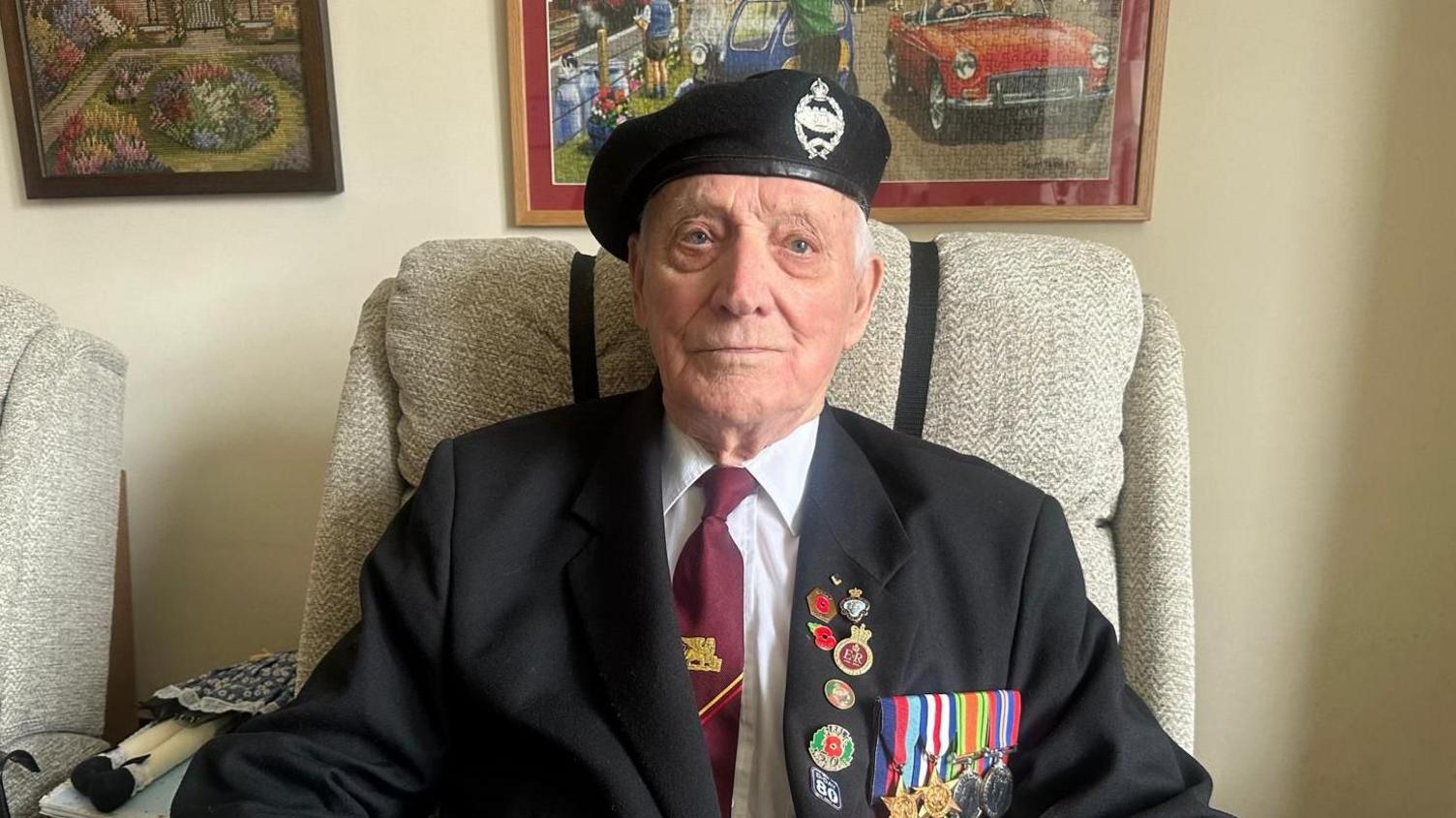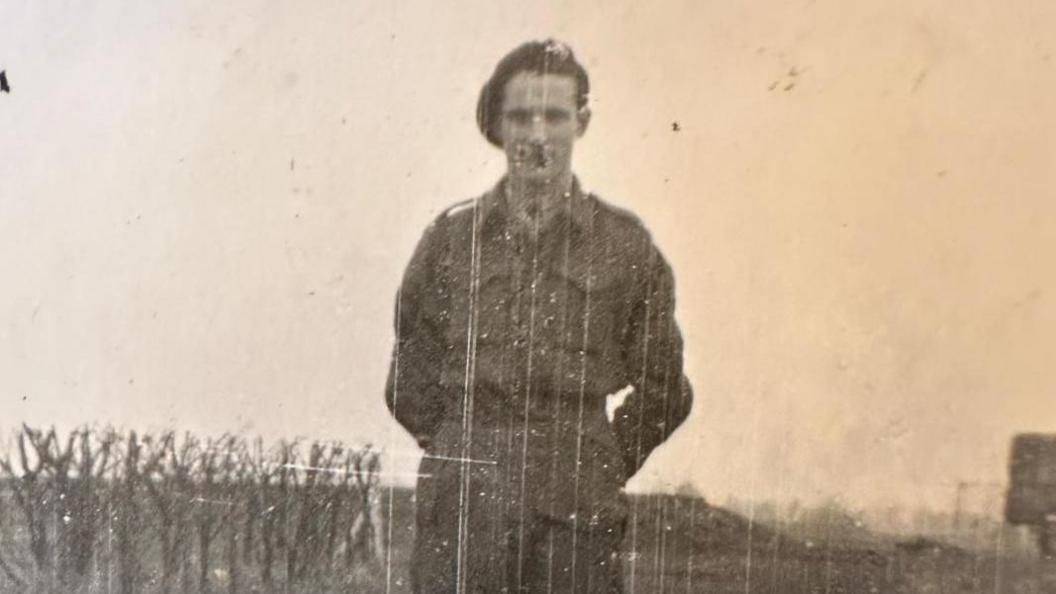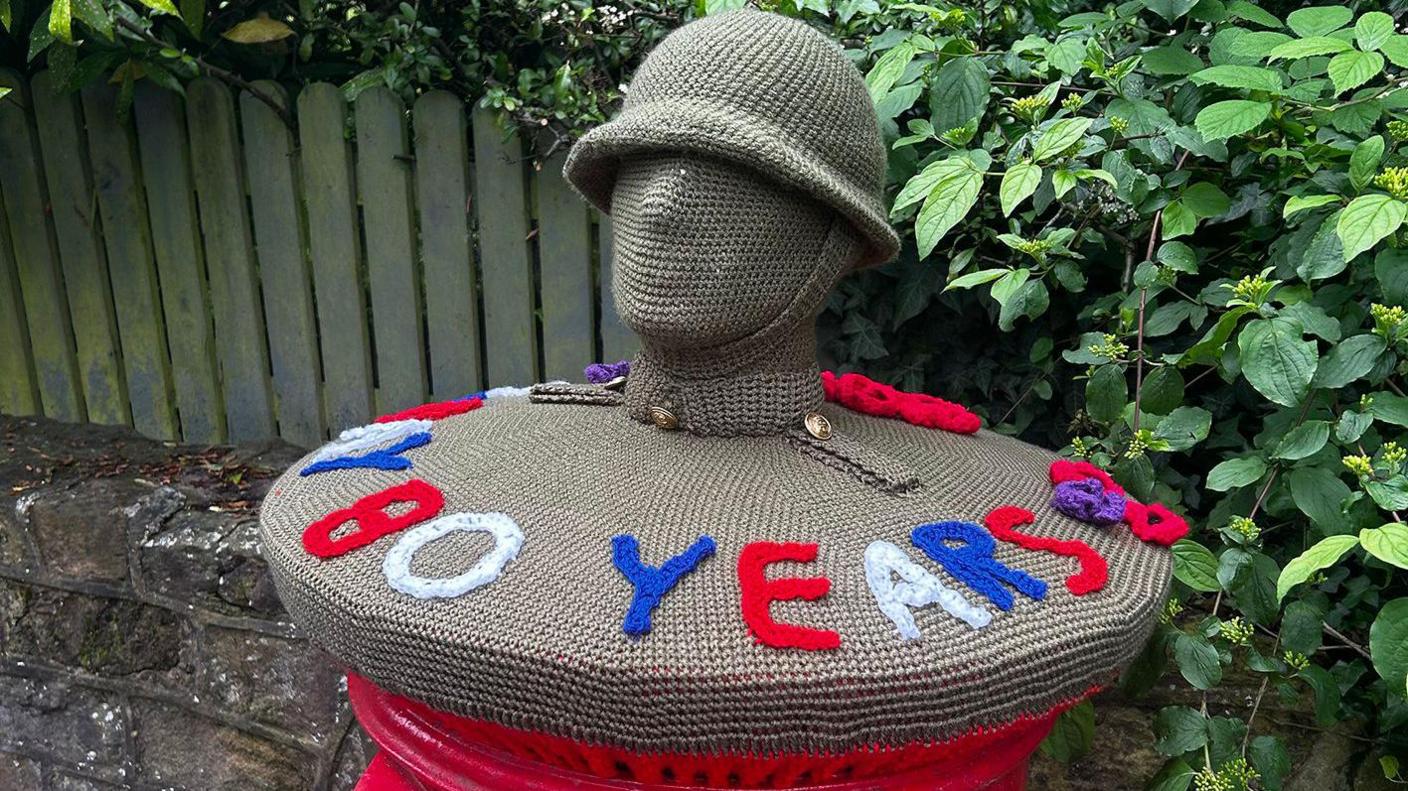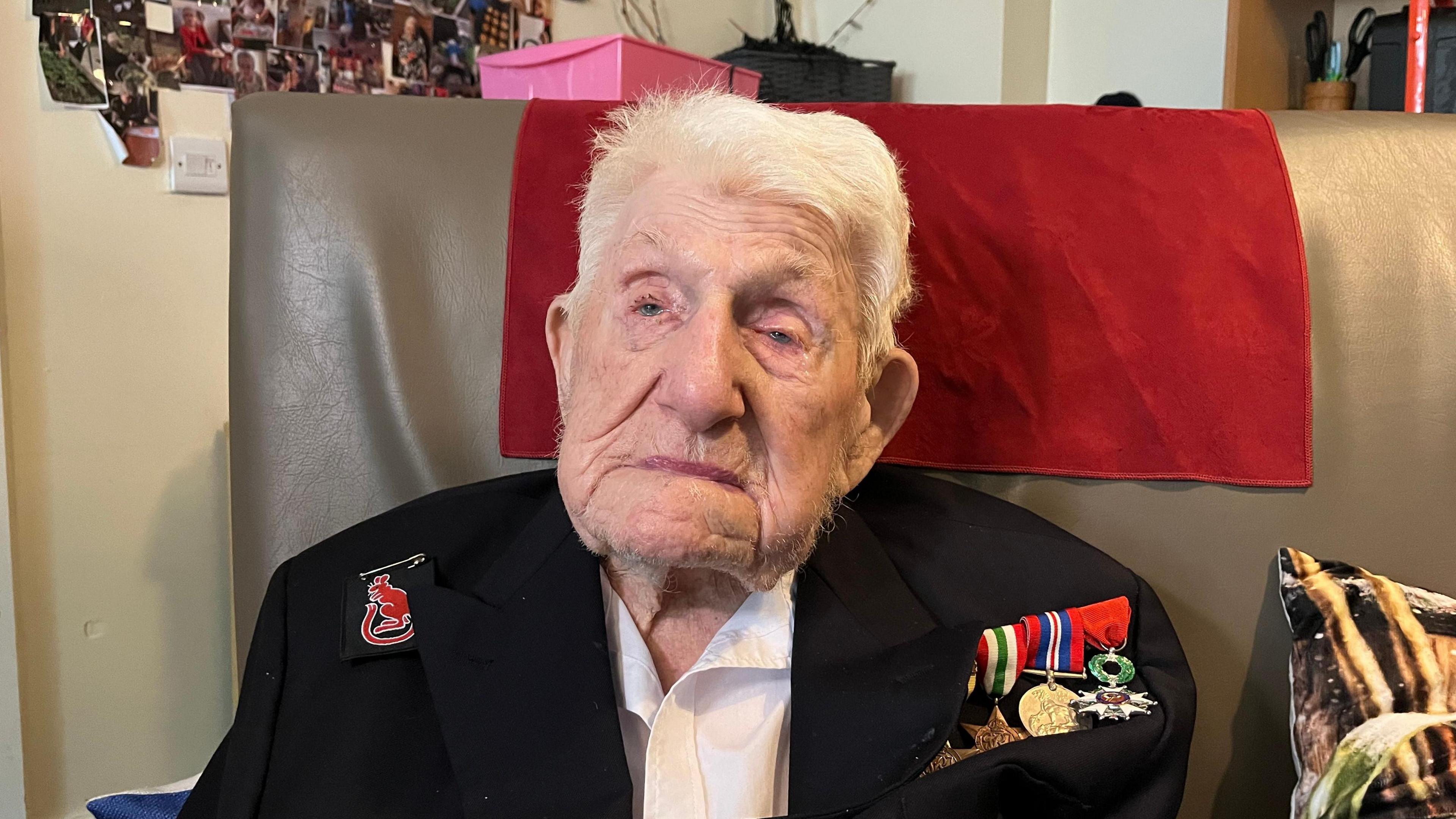D-Day veteran 'shall never forget' Normandy landings

Ted Rutland, now 100, was just 20 when the D-Day landings began
- Published
A 100-year-old World War Two veteran says he will "never forget" what he saw during the D-Day invasion.
Ted Rutland was 20 when he became involved in the major operation to liberate northwest Europe from Nazi occupation.
As part of the 80th anniversary commemorations, Mr Rutland attended the unveiling of a sculpture, on behalf of the Royal Navy, at a gallery in Southampton on Tuesday.
The Mansfield-born veteran still remembers being fired at by German soldiers as they landed on the beach in Normandy, France.
“You had to try and get up onto the road but the Germans were firing at us, we couldn’t move," he said.
Mr Rutland was in the 147 Regiment Royal Armoured Corps (147 RAC) and landed on Gold Beach on 12 June - the sixth day of the D-Day invasion.
Despite the bombardment, Mr Rutland said he - in a tank of five men - managed to get on to the road ahead, and travelled to Caen, where a battle was ongoing as part of the wider battle of Normandy.

Mr Rutland was one of hundreds of thousands of troops who landed in Normandy
Mr Rutland had the job, as co-driver, to get out of the tank he was travelling in and shift bodies out of the path which he said had been placed there to slow soldiers down.
He said: “The Germans used to put dead bodies in the road and they’d put a mine on the side so that if you went on to the side the mines would go off and they’d blow your tractor off.
"So the co-driver in the first tank had to get out and move the dead bodies because we would never roll over a dead [person]. I used to get out and move the dead bodies.”
From the Battle of Caen they moved on to Falaise.
He said many of his regiment were killed by American shells, when aircrafts mistakenly dropped bombs on them.
“I shall never forget what I saw," he said.
"It was scary sometimes but you didn’t bother about anything, you just kept going.”
'Fewer veterans left'
After the war, in 1947, Mr Rutland said he was posted to Germany as an armed guard for the Church Army.
It was here he met his wife Valerie, who he married after returning to England.
After the unveiling of the sculpture on Tuesday, the veteran is due to travel to France with his neighbour of 25 years, Martin Greaves.
Mr Rutland then hopes to find his colonel's grave in a British cemetery in Bayeux.
Mr Greaves said: “I find it amazing that he was 20 when he went over, He had his 21st birthday in battle for Caen, that’s when it happened.
“What’s become more noticeable to me is the fact that there are fewer of these veterans left.”
Follow BBC Nottingham on Facebook, external, on X, external, or on Instagram, external. Send your story ideas to eastmidsnews@bbc.co.uk, external or via WhatsApp, external on 0808 100 2210.
- Published1 June 2024
- Published1 June 2024

- Published1 June 2024
